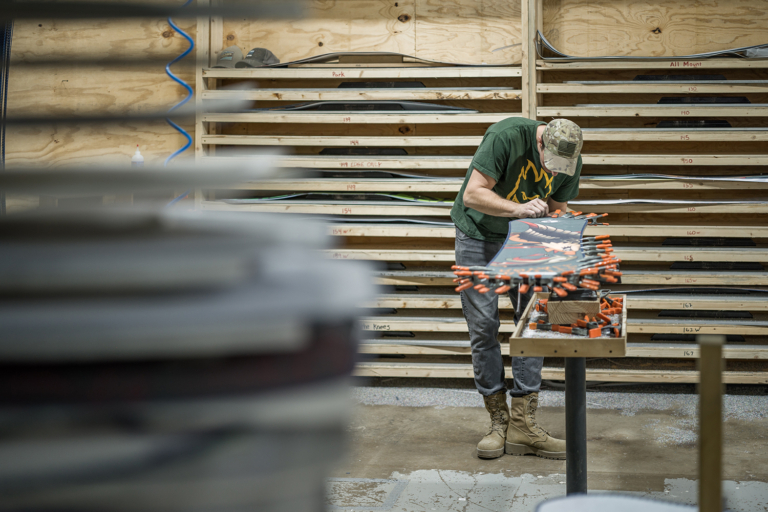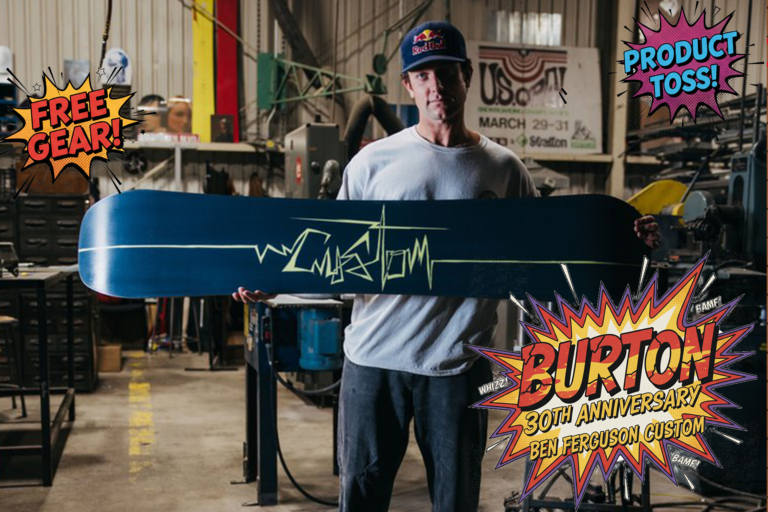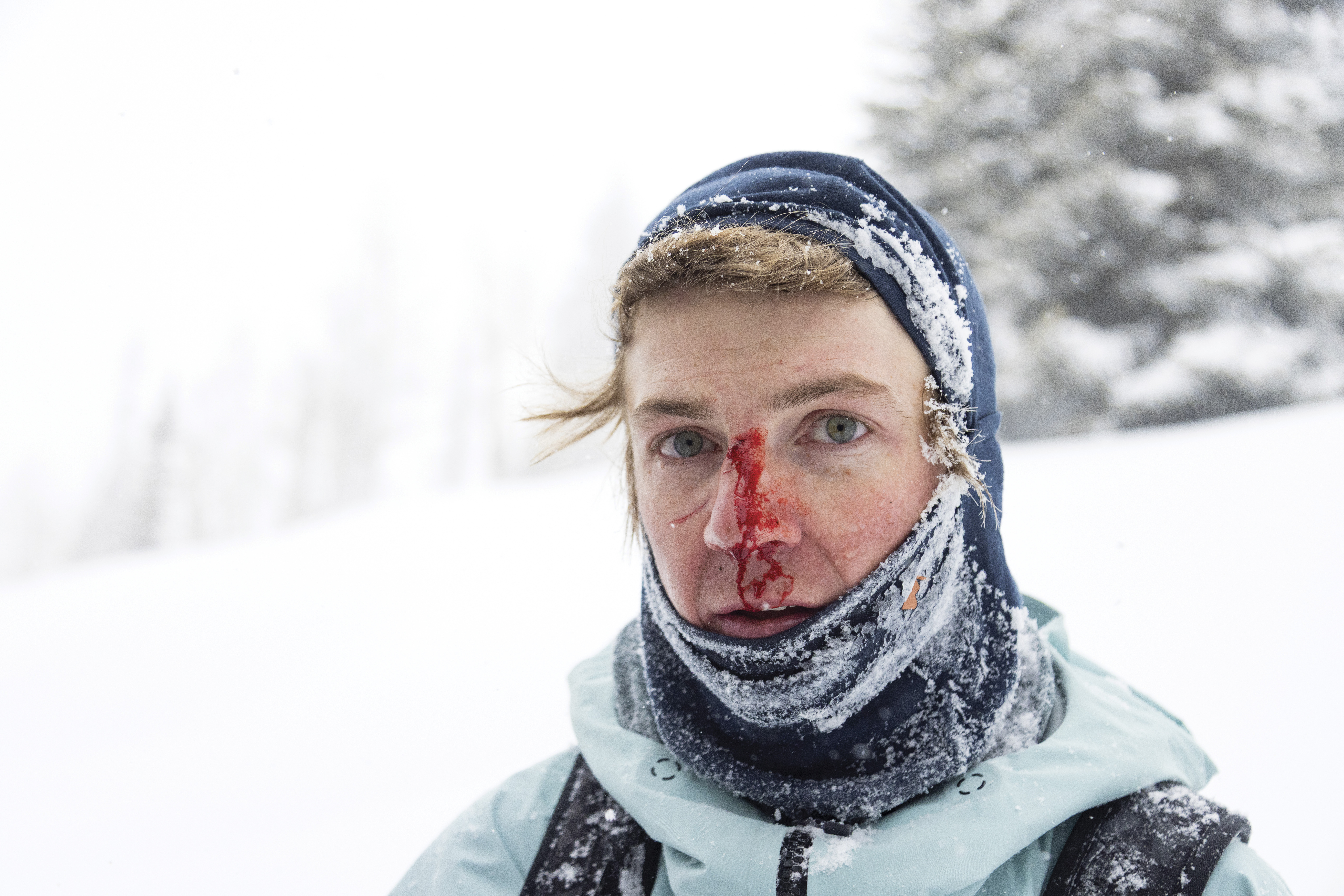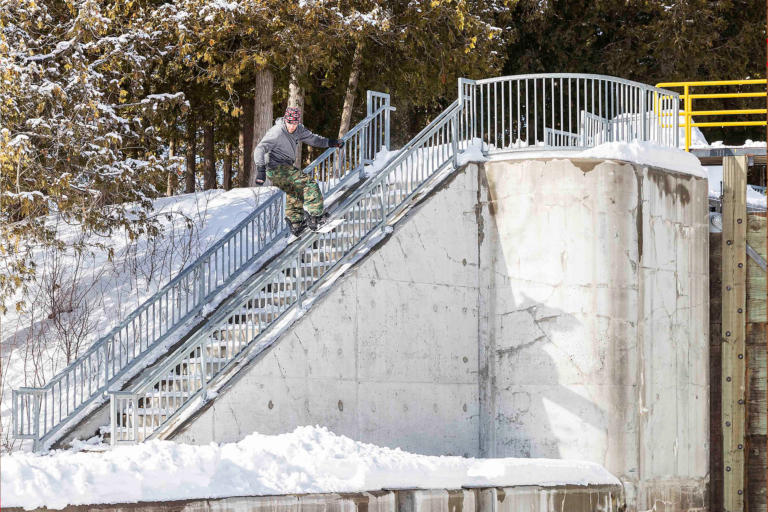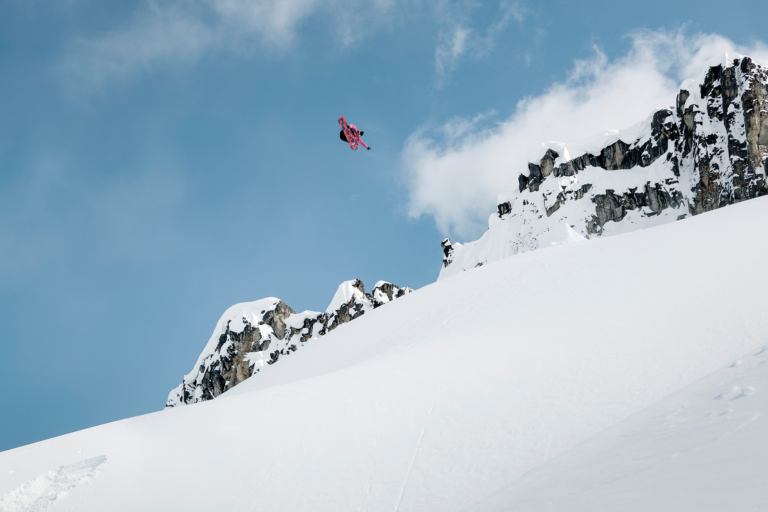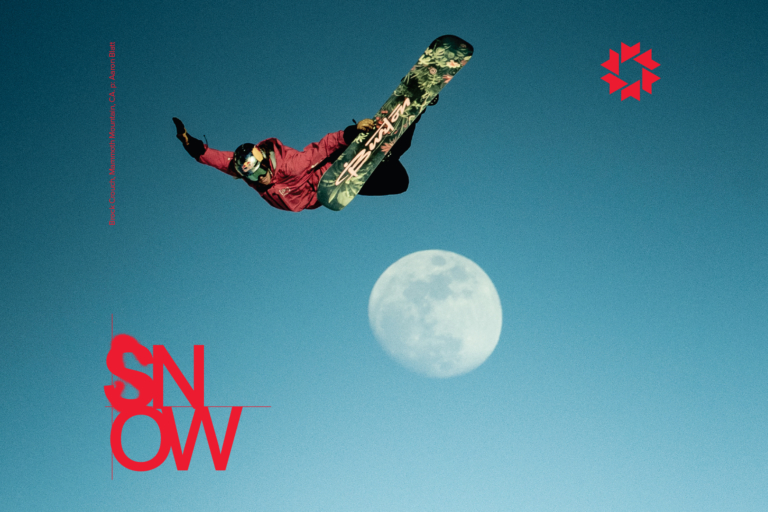Photo: Eric Coleman
Entroducing Josh Davis, aka DJ Shadow, though he needs no introduction. If you’ve watched any major snowboard movie in the last decade, tracks like “Organ Donor,” “Stem Long Stem,” “Mutual Slump” and “Building Steam With a Grain of Salt” set the mood for powder slashes and art forward edits. DJ Shadow is one of the most innovative artists of our generation and has created sound that often can’t be categorized. He was kind enough to sit down for this interview in Boulder, Colorado during his All Basses Covered tour…

What’s it like doing a DJ set in Aspen, Colorado, in a mountain town setting?
Every gig is totally different, especially when I’ve been doing these DJ sets. Sometimes you’ll have a crowd that I call trad, where they are very much thirty-something and maybe they grew up with some music that I made. They really don’t keep up with music and the trends and what not and they really don’t understand why I would be doing something like what I’ve been doing. And those can be sort of tough. I’ve also noticed that ski resort towns are a captive audience because they’re in the mountain and they hear that there’s something going on, but they may not necessarily be familiar with who I am and what I do. I’m just an act. And I think for those types of people they just expect a DJ to play to the audience and play the hits and entertain them basically, and as a DJ that’s not really my aesthetic. And there’s nothing wrong with that style of DJing, I just feel that there are plenty of people who do that and what I’m trying to do is just a little bit different.
Something amazing about you is that your career’s spanned a long time and you’ve done it in a different way from “party DJs” with their style and corporate deals…
Yeah, I never do corporate gigs. I mean, I wouldn’t say never, but I’m trying to think of one and it’s tough. Because, frankly, it would terrify me. I just frequently feel like I’m playing over people’s heads, so to speak. The thing I don’t want to project is a disrespect for my archive, but I did the Shadowsphere tour for two years and now I’m wrapping up, and then it’s like ok. In my mind everything makes sense because everything’s a constant recalibration of what I’m projecting. I totally understand if somebody drops out of what I’m up to for ten years at a time or five years. And then they pop in and depending on when they catch me I might be doing the Shadowsphere, or I might be doing something with Cut Chemist, or I might be doing something like this. And in my mind all are valid and relevant, but in their mind they might be like, “I don’t get it.” You know, cause most artists they do their thing and they do it over and over and over and they evolve it. And that’s cool, but I just like to stay entertained and stay challenged.
Building Steam With a Grain of Salt – Preview
You’ve done some unique collaborations like Rabbit in Your Headlights with Thom Yorke on Psyence Fiction. That entire album was insane… how did that project come about?
The UNKLE project again was another. I had just finished Entroducing and James Lavelle from Mo’ Wax had been trying to get me to focus on doing that Psyence Fiction album for a long time, but until I was done with Entroducing I really couldn’t think about it. What was cool about it and difficult about it is that I basically went right from Entroducing into UNKLE without any kind of break. There was no victory lap for Entroducing or anything like that. In fact, I barely toured for Entroducing. I just was still in the studio. But for me it was great because Entroducing was a really solitary, really personal project and UNKLE was a chance for me to get out there and really just collaborate with all these amazing different types of artists. And also to be able to do it in a real proper studio with a real engineer. Because I mixed Entroducing myself. Not by choice, but by necessity. And I’m not trained to do that so I really wanted to learn from a real engineer.
James Lavelle’s role in the project was really an A&R role and he was living in England. You know, Radiohead’s from there, they broke out there and James was sort of up on them prior to the mainstream. We met with Thom in New York and I played him the demo in the lobby of this hotel and he had his headphones on and he’s sort of chuckling and he goes, “You know it’s completely out of tune, right?”
And I go, “Yeah, so? I mean, who cares.”
And he’s like, “Yeah, no, I agree,” and then he just kept listening.
In between that time and when we were able to actually record him their big album came out, which was OK Computer, the one with “Paranoid Android” and all that. And we actually recorded him the week it came out in the US. So it was exciting. I actually used to have video of him doing that take and my camcorder got stolen years ago, so it’s gone forever, but it was a great experience.
Your mind is so ahead of where music is to the average person and the average ear. What excites you in music right now and inspires you while creating new music?
The reason I play a lot of underground kind of bass music is that I feel like that’s where the innovations are happening. I mean, it’s not happening in rock in my opinion. I haven’t heard any rock and roll that’s compelled me in years, maybe two or three years. That’s not to say there hasn’t been good stuff. In some ways, and sorry if it’s a cliché, but I mean some people call Radiohead the last original rock band because they sort of broke everything down in a way that, that’s it. That’s the essence of it.
So the music that I’m playing is the music I’m into. A year and a half ago when I first started doing these sets, trap, for lack of a better term for the majority of what I’ve been playing, was very much on the bubble, and now it’s almost mainstream. It’s kind of replaced a lot of genres. At that point I always feel like my role is ok, cool, that was a lot of fun and lot of people are doing it and it’s time for me to do something else. That’s just how I am. I’d rather be doing something that’s really at its creative and vital peak rather than it’s already sort of exploded and the ashes are falling. I’d rather be out by that point.
Organ Donor – Preview
It’s impossible to predict what you would do next.
Yeah, and I don’t know either. As I sit here there’s a project that may happen that I’m kind of excited about, but the only thing I can tell you is that if it does happen it’s completely different from what I’m doing right now. And I think a lot of people would dig it. I don’t plan these things, I just sort of go with my heart and I feel like when I’m ready to stop, I stop and whenever I need to sort of go out again, I go out again. When I’m ready to make music, I make music. It’s nice to have that luxury. I mean, believe me I recognize that.
“I’d rather be doing something creative that’s really at its creative and vital peak rather than it’s already sort of exploded and the ashes are falling. I’d rather be out by that point.”
It seems you’re healthy and in a good spot from living that global travel life for so long. Traveling can be really taxing. Is making sure you recharge something that’s important?
You never know when you’re gonna get little moments of wisdom, but I read a quote once from Quentin Tarantino and he’s like, “Artists aren’t supposed to work full time, all the time like 100 hours a week, all the time. You need time to go away and unplug and regenerate and get your breath back.” I needed to hear that.
What’s your creative process like?
Soon I’ll be utilizing another side of the craft, which is making tracks, and when I do that it varies. Pretty much all the way up through Entroducing I was in school and so my equipment was pretty minimal and my record collection was somewhat manageable and I would just work wherever I could.
What did you study in school?
Rhetoric and Communications. Literally I took that major because I was watching Yo! MTV Raps. I was a senior in high school and I had just gotten accepted into school and I didn’t know what I was gonna major in and it may sound ridiculous, but Kool Moe Dee had a little interview segment and he was like, “You know I think it’s important for rappers to get a good education, like me, I got a Communications degree because you never know what’s gonna happen in the business.” And it just went to commercial and I was like, “Communications, ok. That sounds good, I’ll do Communications because he did it and he seems to be doing alright.”
You’ve found a way to communicate in a universal language through what you do and have reached people in every part of the world.
There’s been a lot of serendipitous things, like Mo’ Wax. One of the things that I admired about the label and really tried to encourage James Lavelle to do was to reach out internationally. And by default of that I ended up DJing with DJ Krush who’s like the OG in Japan, and right off the bat there’s a cross-cultural exchange happening. And then I went to Japan and did literally a 12 city tour, which I’ve never done since, by the way. It’s always been maybe 3 or 4. And then Wong Kar-wai, the film director, directed a music video because we asked him to and that kind of became this huge thing in Hong Kong and China. I think lots of times the perception of American artists is that they only care about how they’re perceived in America, whereas I’ve always tried to project an interest in other places and a willingness to invest in those places. We might do a date in Russia or Poland or somewhere that might not be a big money earner or anything like that, but we want to get our foot in the door and try and project something positive and something worthwhile. What usually happens is the first time you do one and the next time you do two and then the next thing you know you’re doing 3 or 4 cities in Poland as opposed to just Warsaw or wherever. I think if you’re willing to make the effort and you’re willing to get on the plane and do all that the sky’s the limit.
Originally featured in Snowboard Mag Vol. 10, Issue 3 | The Cerebral Issue

